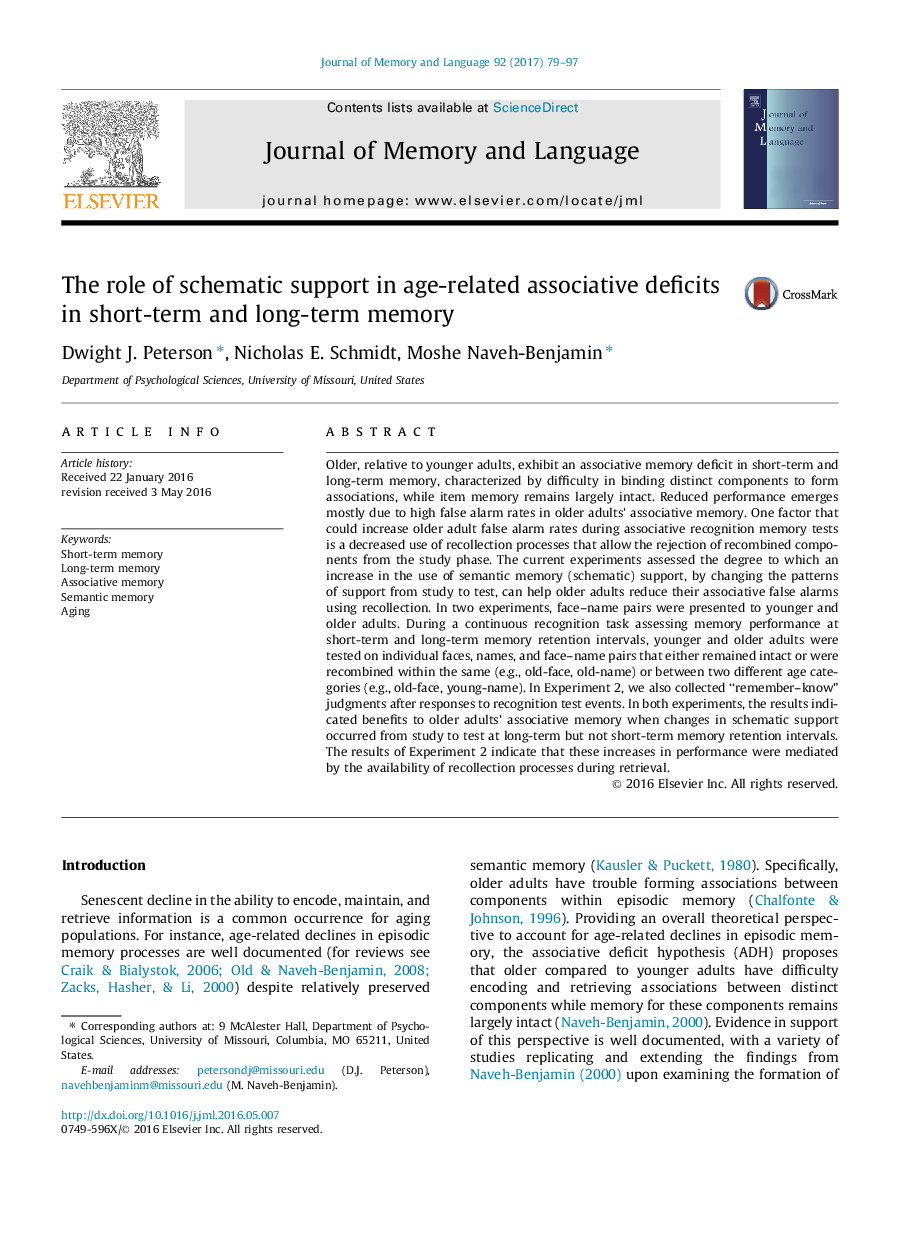ترجمه فارسی عنوان مقاله
نقش پشتیبانی اساسی در اختلالات وابستگی وابسته به سن در حافظه کوتاه مدت و بلند مدت
عنوان انگلیسی
The role of schematic support in age-related associative deficits in short-term and long-term memory
| کد مقاله | سال انتشار | تعداد صفحات مقاله انگلیسی |
|---|---|---|
| 117944 | 2017 | 19 صفحه PDF |
منبع

Publisher : Elsevier - Science Direct (الزویر - ساینس دایرکت)
Journal : Journal of Memory and Language, Volume 92, February 2017, Pages 79-97
ترجمه کلمات کلیدی
حافظه کوتاه مدت، حافظه بلند مدت، حافظه ی انجمنی حافظه معنایی، سالخورده،
کلمات کلیدی انگلیسی
Short-term memory; Long-term memory; Associative memory; Semantic memory; Aging;

